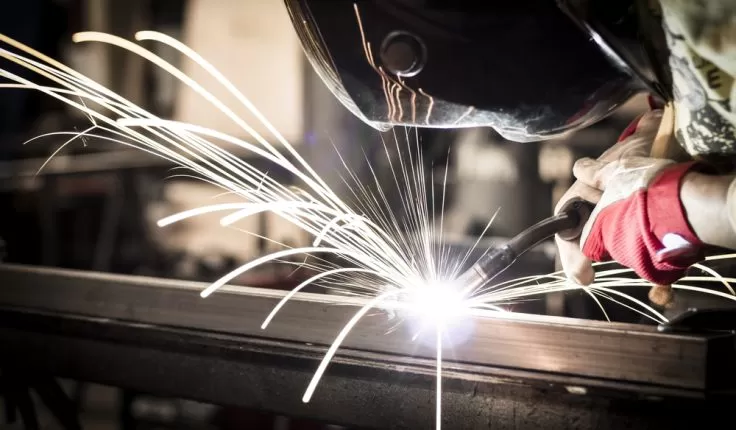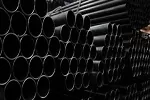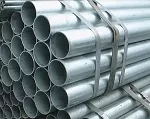Exploring the Various Applications of Expanded Metal Mesh
0 Views

Expanded metal mesh is a versatile material used in a variety of applications. From industrial and commercial settings to residential areas, this product can be used to create durable structures and decorative accents. Additionally, it is often used in conjunction with other materials like slotted angle bar to provide additional strength and stability. In this blog post, we will explore some of the most common uses of expanded metal mesh and discuss how it can benefit both commercial and residential spaces.
History of expanded metal mesh
The concept of expanded metal mesh can be traced back to the early 18th century, when it was used for the first time to create fences. However, it was not until the early 20th century that the technology behind this type of mesh began to evolve. During this period, a machine was developed that could cut and stretch metal sheets to create a mesh with diamond-shaped holes.
Initially, expanded metal mesh was used primarily for architectural purposes such as fencing, cladding, and roofing. However, as the manufacturing process became more sophisticated, it began to find its way into a variety of other applications. Today, it is commonly used in the construction of buildings, vehicles, machinery, and many other products.
In many cases, expanded metal mesh is used in combination with other materials such as slotted angle bar to create a more complex structure. The slotted angle bar provides additional support, while the mesh provides a lightweight, durable, and flexible covering. This combination has proven to be especially useful in the construction of storage systems and shelving units.
How is expanded metal mesh made?
Expanded metal mesh is a versatile material that is created through a unique process of stretching and flattening metal sheets. To create this type of mesh, a sheet of metal, typically steel or aluminum, is placed onto a slotted angle bar. The slotted angle bar has a series of parallel slots that run along the length of the bar.
Next, the metal sheet is passed through a machine that presses down on the metal, causing it to stretch and expand through the slots in the angle bar. The process is repeated several times until the metal is flattened and expanded to the desired thickness and shape.
Once the expanded metal mesh is created, it can be cut and shaped to fit a wide variety of applications. The edges of the mesh are not sharp, making it safe for handling and installation.
Overall, the process of creating expanded metal mesh is straightforward and cost-effective, making it a popular choice for many industries.
What are the benefits of expanded metal mesh?
Expanded metal mesh is a versatile material that has several benefits, making it a popular choice across industries. Here are some of the key benefits of expanded metal mesh:
- Lightweight yet strong: Expanded metal mesh is lightweight, yet it offers high strength and durability. This makes it an excellent choice for applications where a strong yet lightweight material is required.
- Cost-effective: As compared to other materials like steel or aluminum, expanded metal mesh is relatively inexpensive. This makes it a cost-effective choice for businesses looking to cut costs without compromising on quality.
- Good ventilation and drainage: Due to its unique pattern of holes, expanded metal mesh offers excellent ventilation and drainage capabilities. This makes it a popular choice for applications where good airflow and drainage are required.
- Low maintenance: Expanded metal mesh requires minimal maintenance and can last for several years with proper care. This makes it a hassle-free and low-maintenance choice for businesses.
- Easy to install: Expanded metal mesh can be easily cut, bent, and shaped to fit any application. It can also be quickly installed using slotted angle bar, which makes it an easy-to-install choice for businesses.
Overall, expanded metal mesh offers several benefits that make it a popular choice across industries. Its strength, durability, ventilation, and drainage capabilities, coupled with its cost-effectiveness and ease of installation, make it a versatile material that can be used in a wide range of applications.
The many applications of expanded metal mesh
Expanded metal mesh is a versatile material that finds use in various applications due to its unique characteristics. Here are some of the applications of expanded metal mesh.
- Architectural: Expanded metal mesh is used in architectural applications such as facades, building cladding, sunscreens, and louvers. It offers aesthetic appeal, while its transparency and airflow properties provide effective shading and ventilation.
- Security: Expanded metal mesh is commonly used as a security material for doors, windows, fences, and gates. Its durability, strength, and resistance to vandalism and forced entry make it an ideal choice for securing homes, commercial and industrial properties.
- Filtration: Expanded metal mesh can be used in filtration systems, such as air filters and water filters. Its open surface area allows for efficient filtration, while its durability and resistance to corrosion make it suitable for use in harsh environments.
- Industrial: Expanded metal mesh can be used in industrial applications such as conveyor systems, machine guards, and partitions. It offers structural stability and safety, while its open design allows for easy maintenance and inspection.
- Automotive: Expanded metal mesh is used in the automotive industry as a radiator grill and air intake grill. Its lightweight, strength, and heat-resistant properties make it a popular choice for these applications.
- Agriculture: Expanded metal mesh can be used in agricultural applications, such as fencing, animal cages, and birdcages. Its strength, durability, and rust resistance make it suitable for use in outdoor environments.
Additionally, expanded metal mesh can be combined with slotted angle bar to create versatile shelving systems. This type of shelving is often used in warehouses, retail stores, and garages for storing items of different sizes and weights.
- TAGS :
- expanded metal mesh
Related Posts
How Do You Choose the Right Angle Bar Size and Material for Your Project?
Andrin Andrin / July 18, 2024













